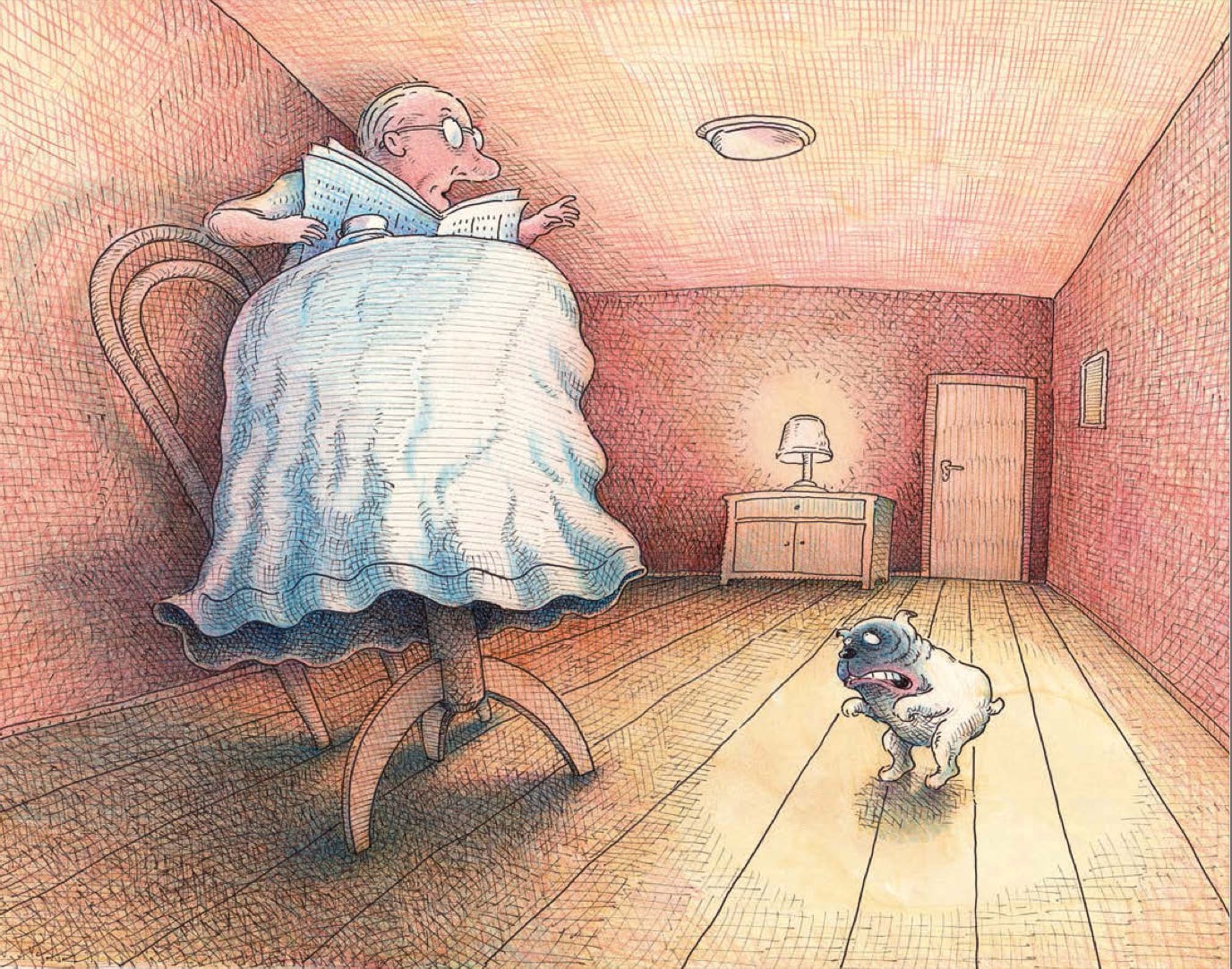I’m relaunching this Substack in a new format– I’ll be doing occasional longer, more serious pieces for free. I’ll also be writing weekly recommendations of books, art, and music for kids behind the paywall. Much of it, like the Ernst Jandl poem I’m writing about here, will be in German, but my hope is to make this work accessible to kids no matter what languages they speak.
Ottos Mops
I’m not sure anything has ever made my daughters laugh harder than Ottos Mops, Ernst Jandl’s short, absurd poem describing a man’s frustration with his pug. Really, though, the poem describes the German language much more than it describes a man or a pug or a house or a series of frustrations. That sounds like an enormously pretentious thing to say, but kids immediately get the humor behind exaggarated sounds and patterns repeated to the point of absurdity and the constant “Os” and plosives that make up the text have an obvious appeal:
ottos mops trotzt
otto: fort mops fort
ottos mops hopst fort
otto: soso
There’s a really wonderful series of attempts to translate the poem that came out of a contest commissioned by the now defunct Sign and Sight in 2005. With all deference to the really great translators who tried their hand at the poem, I still don’t think anything really comes close to the original and I’m guessing, you can get a lot of kids who don’t speak German to laugh with this brief cartoon by the sculptor and illustrator Norman Junge, whose images also accompany our copy of Ottos Mops:
It might be even better to read it to your kids yourself, though– you’ll find a copy of the text at LyrikLine. There’s also a recording of Jandl reading it aloud, which is a lot of fun to listen to, but I wouldn’t recommend trying to emulate it to closely. In his later career, Jandl– paramour of Viennese literary titan Friederike Mayröcker– devoted much of his later career to working on what he called, “heruntergekommene Sprache,” which you might translate as something like, “down-and-out language,” and he was particularly interested in the ways in which non-native speakers of German were capable of reworking the rules of the language and he often emulated foreign accents and speech defects in his poetry– not to mock, but as a way of breaking down the kinds of pathos and self-seriousness that could otherwise infect poetic writing.
English speakers might be familiar with similar kind of linguistic experimentation from Jabberwocky, as well as from texts like Luis d'Antin van Rooten’s Mots d'Heures: Gousses, Rames: The d'Antin Manuscript, or Spike Milligan’s On the Ning Nang Nong, but Jandl’s language play was especially rigorous. It was also especially controversial– when Jandl first published his “Lautgedichte” (“sound poems”) in 1958, they led to outraged attempts to have Jandl fired from his job teaching high school German and Jandl was effectively barred from publication until the mid-sixties, when his work found favor among a new literary generation.
I think kids have an intuitive sense that there can be something dangerous about the ways language sound– at some level, the impulse that informs Jandl seems related to the impulse behind things like singing “99 Bottles of Beer on the Wall” until your parents go insane. Amazingly, it seems to have worked.





